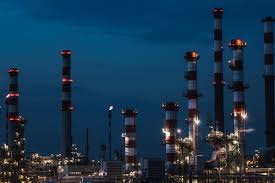
The Importance of Industry in Economic Development
Industry plays a crucial role in the economic development of a country. It encompasses various sectors such as manufacturing, construction, energy, and technology, all of which contribute significantly to a nation’s GDP and employment levels.
One of the key benefits of a strong industrial sector is job creation. Industries provide employment opportunities for a large segment of the population, ranging from skilled workers in manufacturing plants to engineers designing innovative products. This not only reduces unemployment rates but also improves living standards and boosts consumer spending.
Moreover, industries drive innovation and technological advancements. Research and development activities within industries lead to the creation of new products, processes, and services that enhance efficiency and productivity. This continuous innovation is essential for maintaining competitiveness in the global market and driving economic growth.
Industrial growth also fosters infrastructure development. The establishment of manufacturing facilities, power plants, transportation networks, and other industrial infrastructure not only supports industry operations but also spurs growth in related sectors such as construction and logistics. This infrastructure development contributes to overall economic progress by improving connectivity and accessibility.
Furthermore, industries play a vital role in trade and exports. Manufacturing industries produce goods that can be exported to international markets, generating foreign exchange earnings for the country. A robust industrial sector with competitive products enhances a nation’s export potential and trade balance, thereby strengthening its position in the global economy.
In conclusion, industry is an indispensable driver of economic development. Its contributions extend beyond GDP growth to encompass job creation, innovation, infrastructure development, and international trade. Governments and policymakers must recognise the significance of fostering a conducive environment for industrial growth to ensure sustained economic prosperity.
Understanding the Role and Impact of Industry: Key FAQs
- What is the role of industry in economic development?
- How does industry contribute to job creation?
- What are the key sectors within the industrial industry?
- What impact does industrial growth have on infrastructure development?
- How does industry influence international trade and exports?
What is the role of industry in economic development?
The role of industry in economic development is pivotal and multifaceted. Industries not only drive economic growth by contributing significantly to a nation’s GDP but also play a crucial role in job creation, innovation, infrastructure development, and international trade. By providing employment opportunities across various sectors and fostering technological advancements through research and development activities, industries enhance productivity and competitiveness. Furthermore, the establishment of industrial infrastructure supports overall economic progress by improving connectivity and facilitating trade both domestically and internationally. In essence, industry serves as a cornerstone of economic development, underpinning prosperity and sustainable growth for nations worldwide.
How does industry contribute to job creation?
Industry significantly contributes to job creation through various avenues. The establishment and growth of industries, spanning sectors such as manufacturing, construction, and technology, generate a wide range of employment opportunities for individuals with diverse skill sets. From assembly line workers in manufacturing plants to engineers designing cutting-edge products, industries offer jobs at different levels of expertise. This not only helps reduce unemployment rates but also enhances the overall economic landscape by improving income levels, boosting consumer spending, and fostering a skilled workforce that drives innovation and productivity within the industrial sector.
What are the key sectors within the industrial industry?
Within the industrial industry, there are several key sectors that play pivotal roles in driving economic growth and development. These sectors encompass a wide range of activities, including manufacturing, construction, energy production, technology and innovation, transportation and logistics, and agriculture. Each sector contributes uniquely to the overall industrial landscape, with manufacturing being a core component responsible for producing goods ranging from automobiles to electronics. Construction plays a crucial role in building infrastructure and real estate developments. Energy production involves generating power through various sources such as oil, gas, renewable energy, and nuclear power. Technology and innovation drive advancements in digitalisation, automation, and research and development. Transportation and logistics ensure the efficient movement of goods and services across supply chains. Agriculture remains fundamental for food production and sustainability. Together, these key sectors within the industrial industry form a dynamic ecosystem that fuels economic progress and prosperity.
What impact does industrial growth have on infrastructure development?
Industrial growth has a significant impact on infrastructure development. As industries expand and flourish, there is a growing demand for supportive infrastructure such as manufacturing facilities, power plants, transportation networks, and communication systems. Investment in industrial infrastructure not only facilitates the smooth operation of industries but also spurs the development of related sectors like construction and logistics. This symbiotic relationship between industrial growth and infrastructure development results in improved connectivity, efficiency, and accessibility, ultimately driving overall economic progress and prosperity.
How does industry influence international trade and exports?
Industry plays a significant role in influencing international trade and exports through the production of goods that can be traded globally. Strong industrial sectors with competitive products enhance a country’s export potential by offering a diverse range of goods for international markets. Industries drive innovation and technological advancements, leading to the creation of high-quality products that can meet the demands of consumers worldwide. Additionally, industrial growth fosters infrastructure development, such as manufacturing facilities and transportation networks, which support efficient trade processes. By contributing to a nation’s export capacity and competitiveness in the global market, industries play a crucial role in shaping international trade dynamics and driving economic growth through exports.
